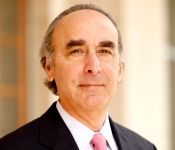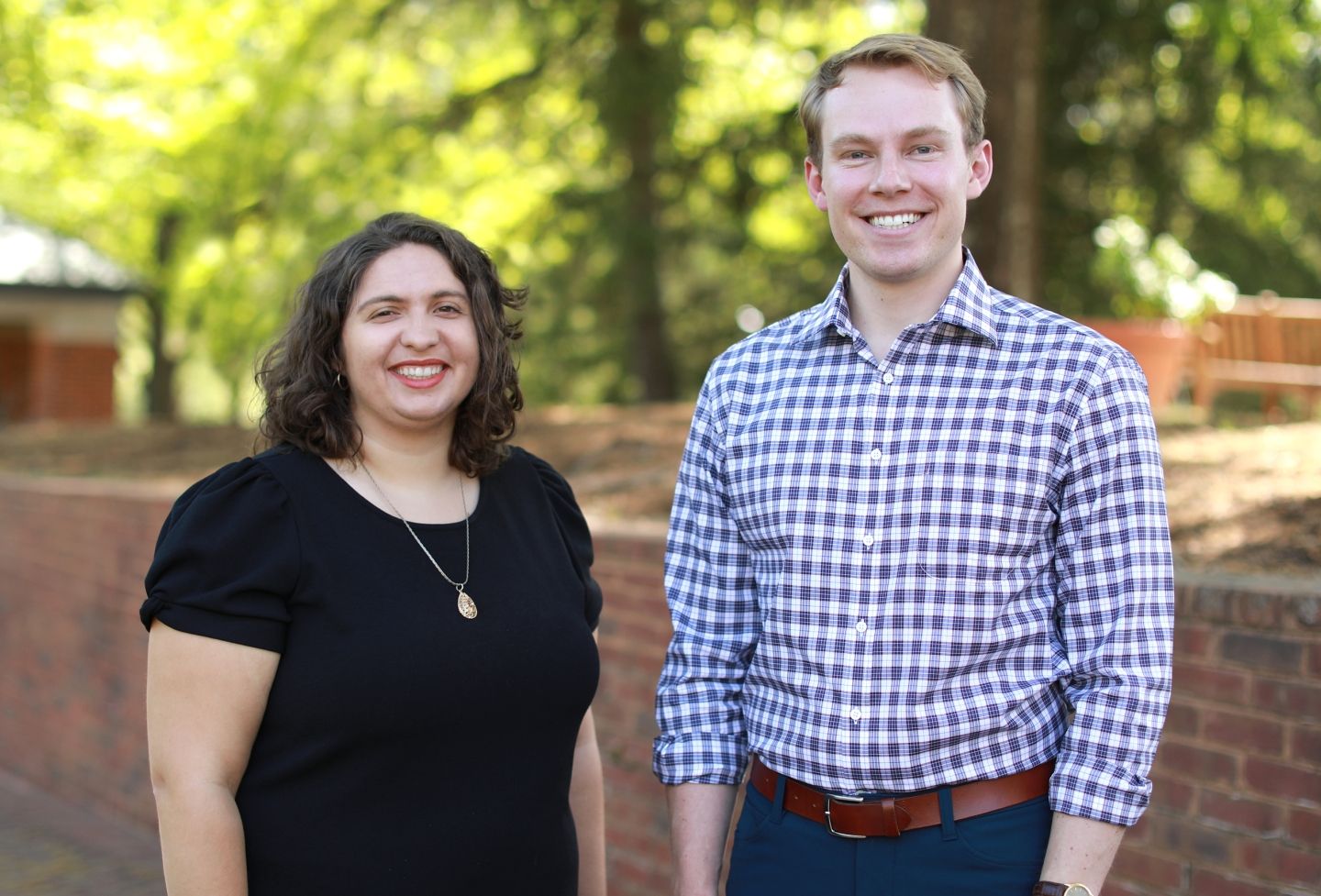How and why do law professors write such challenging exams? University of Virginia law professors Kenneth Abraham, Albert Choi and Risa Goluboff recently discussed their process and offered tips for how students can master taking exams.
The professors
Abraham is teaching a first-year Torts course this fall, as well as a seminar, Tort Theory. He also teaches Torts II and courses in insurance.
Choi is leading a first-year Contracts class this semester and Mergers & Acquisitions (Law & Business) and Legal Issues in Corporate Finance (Law & Business) next semester.
Goluboff is teaching the first-year required course Constitutional Law in the spring and has taught a range of upper-level constitutional law and civil rights courses.
How they brainstorm questions
Goluboff keeps an eye on current events to watch for issues that make good test questions. "A few years ago when the health care case was at the Supreme Court — I knew as I was watching it unfold that it was going to be a question on my exam," she said. She also once had a question on the Trayvon Martin case and Florida's "stand your ground" law.

Abraham similarly keeps a file of potential questions. "In the course of my work, in the course of my research or sometimes teaching, I run across cases or issues or problems that could be the basis for an exam, then I make notes about them," he said. "It usually is just a very skeletal sort of thing, you know — a hot water heater explodes, or somebody's witnessing their loved one come out of surgery — then I start adding detail to the core situation, building up a problem that's complex and difficult enough to be worthy of being on an exam."
In a long fact-pattern question, Choi aims "to make it as realistic as possible," as if a real client came in with the question. "I rely a lot on actual cases and real events that took place."
Their preferred exam format
Abraham's exams are two or three questions. "Most of my exams fit on one page, and the problem is not organization or unraveling fact hypotheticals, it's seeing what's deep and difficult about a problem that may seem simple and easy on the surface," he said, "because that's what good lawyers do. Any lawyer can solve an easy problem.
"Our students are all already such good students that they're all capable of getting an A-plus on an exam that asks them to give back the information that they've been given in the course of a semester. So I just assume they'll be able to do that well. Then I go on to something harder."
Choi's Contracts test has two parts: a long fact-pattern question that deals with fewer than 10 issues, then a series of about 10 short-answer hypothetical questions designed to test students on their knowledge of the law.

His upper-level exams usually involve only fact-pattern questions, he said, because in-depth analysis is more important for second- and third-year law students.
Goluboff said her Constitutional Law exam typically has one big fact-pattern question that covers many issues and one conceptual or theoretical abstract question.
"I want to make sure that I achieve some doctrinal coverage — that I test their understanding of the basic doctrine and that they can play with it, and that I give them something that's meaty and complicated," she said. The abstract questions allows them to show "that not only have they done the reading, not only do they understand the doctrine, but that they've actually thought more deeply about the bigger questions in constitutional law, the questions that really don't have any real answer."
What they test for
"I know there are some people who write out an ideal answer, and I don't do that, but I do have a very detailed checklist kind of sheet on which I have the main issues and the many ways that someone should go about responding to the issues," Goluboff said.
Choi said it was important students realize that in his fact-pattern question, "some issues are a lot more important than the others," so they can give more in-depth analysis on those. Furthermore, "If I ask them to take on an advocacy role, they not only have to think about what kind of argument they are going to present, but also address what the potential counter arguments are."

Abraham said his exams don't test for knowledge of the rules, or mechanical applications of them. "I try to produce problems that will ask the students to use what they know and what they've learned in the course and apply it to a problem or issue that they've never encountered before," he said. "So I have to tinker and adjust and modify these questions as I draft them so that they generate issues that are hard and that the students haven't seen."
"Sometimes on exams I have a question that is very short and isn't fact-based but requires seeing connections between materials in different parts of the course between which I haven't drawn a connection before. In situations where they would say, 'Well there's no connection,' what they need to see is some of the deep structure of the body of the law that they've learned about."
How they changed their methods over time
"My exams used to be longer; they used to have more issues on them. I didn't appreciate how difficult it was to cover everything in an answer [in an hour or a little over an hour]," Abraham said. "My questions have gotten leaner and leaner, but less and less transparent."
Choi said he began his teaching career with just fact-pattern questions on his Contracts test, but "It's really difficult to come up with a fact pattern that covers all the issues." Also, the scenarios he devised to cover so many issues were "becoming somewhat less realistic."
"It is still an evolution, I might decide to do something else in the future," he said. "There's always room for improvement."
Goluboff said her checklist for grading exams has changed over time, but some key points remain the same — whether answers are well-written or well-organized, for example— while others have been added, such as whether the test-taker sees the "forest, trees, both or neither."
What they allow students to bring
Goluboff's exams are closed-book, but students can bring one cheat sheet.
Choi allows books from the course, statutory supplements, the syllabus, outlines and summaries, but not hornbooks or other sources.
Abraham allows students to bring anything they want.
On grading
"Every now and then you get an answer that is just so perfect that you think, 'If I had written out an answer, it would look like this,'" Goluboff said.
On Goluboff's issue-spotting doctrinal question there are ideal answers, but on the conceptual question "There are many answers that could get an A."
"To me, a good exam answer peels the layers off an onion," Abraham said.
"The students often take very different approaches in answering questions," Choi said, adding that he's satisfied as long as they hit on important issues. "Sometimes students do mention some peripheral issue that I had not previously deeply thought about. If I think that new perspective is important, sometimes I give students some extra credit for that."
How exams test both teacher and student
Goluboff said she is often surprised by students' answers to the conceptual question, and how they think about the Constitution in creative ways. "That's always really gratifying to me," she said.
On the other hand, "Sometimes you get answers that are just wrong, where it's clear that I as a professor was not clear in explaining some concept or some rule," she said. When that happens, she will adjust how she grades on that issue. "It's rare that no one gets it, [but] I do realize that I'm on the hook for it if a lot of people aren't getting it."
Abraham said he likes to let a draft of an exam sit for a week or so, leaving him time to spot weaknesses or ambiguities. "I try to come back to it and say, 'What could somebody say is unfair about this question?' — and make it difficult but fair."
"What you're trying to do is raise questions, pose issues in a different way than you have in the past," he said.
On preparing for the exam
"Even in an open-book exam, I would recommend getting yourself down to a cheat sheet or two," Goluboff said. Distilling information from a long outline "is a way to make you more facile with it." She advises her students to identify the themes of the course and figure out which cases relate to those themes. "It's a good thing to do practice exams."
Choi agreed that coming up with a shorter cheat sheet, when allowed, offered students the best kind of preparation. He suggested a two- to three-page summary listing the issues, and the relevant statute provisions, UCC statements or articles, and cases. "Given that you already have all that knowledge in your head, it will allow you to make those connections in writing your essay much faster," he said.
Abraham said he advises students to get in a study group from the beginning of the semester and talk about the issues. "If you haven't done that in the course of the semester, you're at a big disadvantage and it's hard to do anything to make up for that disadvantage in two days of studying," he said.
How students can do better during the test
"Read the questions really carefully," Goluboff said. "One of the things that I find really frustrating when grading exams is when the students misunderstand the nature of the question.
"Something that trips up a lot of people is, in the anxiety and the time pressure of taking the test, not spending enough time seeing what is this question asking you to do, what kind of an answer does the question require, and what does that look like," she said. Students should "know whether the question is asking you doctrine or asking you to think at a higher level. And then answer accordingly."
Choi also suggested a careful process for tackling issue-spotting questions.
"I think it is really important to not rush into things — you have to organize your thoughts and come up with a master plan before you start writing," he said. He suggested students read fact-pattern questions carefully, and then "think of a plan of attack." After about five to 10 minutes of preparation, start writing and unpacking each issue in full force. "Finally, after you have written and gone through all those issues, you want to do some mop-up operation." That entails organizing or rearranging your paragraphs, and rewriting or adding some writing where necessary to make sure your answer represents everything you want to say.
What you should avoid doing during the test
Goluboff said it was critical not to leave any blank answers. "When it's clear that someone has run out of time and they've written me a paragraph that gives me, in broad strokes, their understanding of the question, and it's clear that they understand it, that [student] is in a very different position than someone who didn't answer the question at all," she said. "Even if they've only spent five or 10 minutes giving me those broad brushstrokes, they're worth a lot. Showing me that they knew the answer is very important."
"Don't stress out too much," Choi advised. "If you get stressed out, you perform less well, so you have to try to go into the exam with a relaxed attitude so your brain can function much faster." At the exam, sometimes it helps to keep things in perspective: "Even if you get a bad grade, that's not the end of the world. Years from now, you won't even care what you received in a first-year, first-semester course."
Why it’s rewarding
"I really like writing exams, I really do, and I like reading them," Goluboff said. "I'm learning from my students when I read their exams. I'm excited when they get it, and I'm chagrined when they don't."
Abraham added, "Often there are issues in the questions that I haven't seen in advance, and it's only as the students write about them and discover and uncover issues that I see some issues myself. And it's wonderful sometimes to read an exam about which I say, 'Oh, I hadn't seen that, that’s terrific.'"
Founded in 1819, the University of Virginia School of Law is the second-oldest continuously operating law school in the nation. Consistently ranked among the top law schools, Virginia is a world-renowned training ground for distinguished lawyers and public servants, instilling in them a commitment to leadership, integrity and community service.


